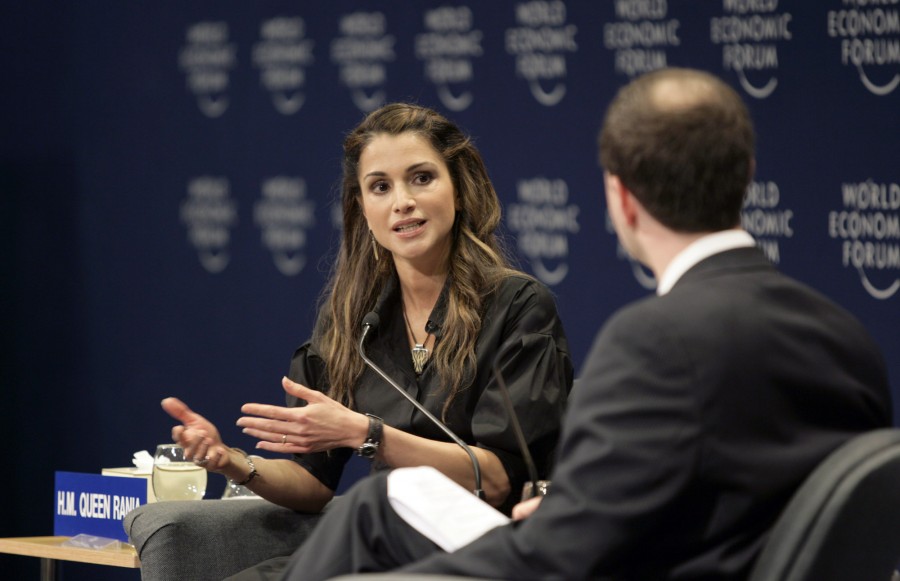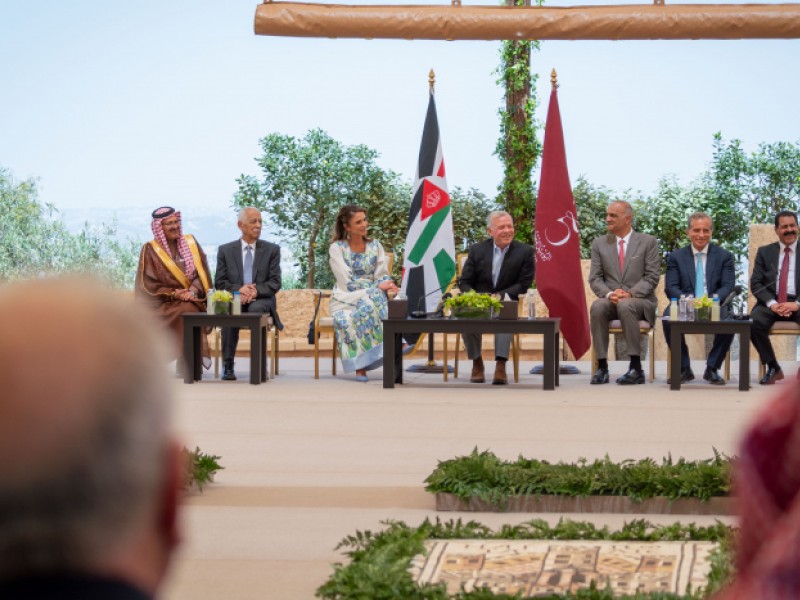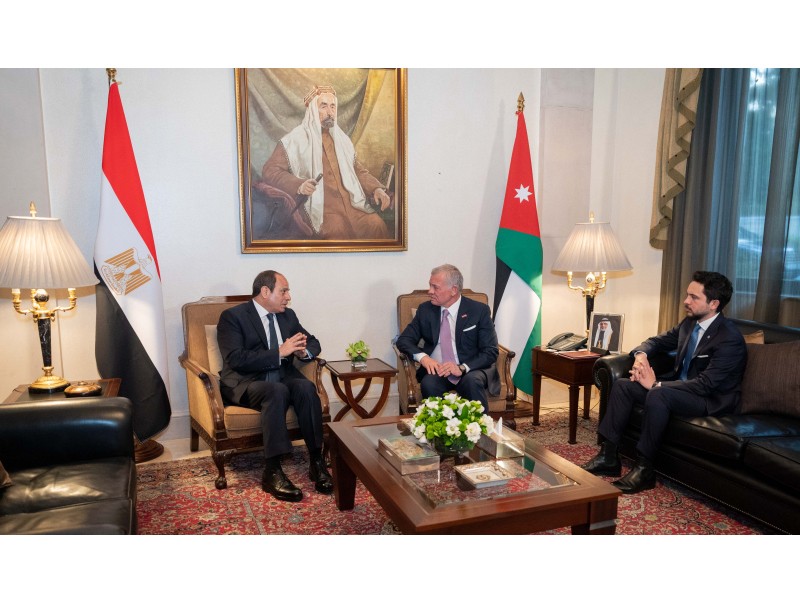Queen Rania Calls on WEF Community and Larger Audience to Deconstruct Prejudices

(Office of Her Majesty, Press Department – Dead Sea) As globalization continues to bring our world closer together, dealing with different cultures is becoming increasingly important. Her Majesty Queen Rania Al Abdullah joined Harvard professor Daniel Shapiro for a frank discussion about the imminent need for communication and understanding across cultures. In defining multiculturalism, Her Majesty said "the word is self explanatory… it means having cultures living alongside each other, which is what describes our world today, but it does not mean it is being done well or actively…. Multiculturalism should be a decision, a choice, an act of will and it's hard work." "We may be connected, but we're not connecting… and that's the difference between a courteous neighbor and a concerned neighbor," said the Queen. Queen Rania, who speaks often out about the need to bridge the gap between East and West through dialogue and understanding, reminded the audience of both the personal and economical benefits of breaking down prejudices and increasing communication across cultures. CEOs and executives working abroad need to embrace the cultures they are in, and be sensitized to their work environment, otherwise they miss the opportunity to cater to the needs of the society, said the Queen, "it results in a stronger bottom line." At the individual level, she noted how rewarding it is for people to gain insight about other cultures. "Looking at the world from someone else's perspective adds texture and depth to our own insights... and enriches your perspective," she said. Drawing on her own multicultural background, Queen Rania said "I'm very lucky to understand both the Eastern and Western cultures, but it's more than luck… it's a responsibility." The responsibility of which falls on all individuals, to actively and passionately pursue a multicultural approach to dialogue and to put more of an effort in learning about other cultures and understanding habits and traditions. Still, the Queen cautioned that it is not enough simply to research other cultures. "[With the use of computers] it's easy to learn about other cultures, but that can give us the false sense of knowing," warned Queen Rania as she advocated for people to reach out across borders and cultures and actively embrace others different from themselves. "Nothing compensates for human to human interaction," she said. In teaching a culture of acceptance, Her Majesty noted that "education begins on a mother's lap… it is important to teach [our children] how to be good global citizens… and equally important is what we don't pass on to them like stereotypes and prejudices." Her Majesty drew on some touching personal examples, where she has observed her children interacting with other children from different cultures with such ease. "Children play and interact with each other without any prejudice… and we need to learn from them," she said. Queen Rania urged the WEF community and the larger audience, "Go back to the time when we were younger, and a little more open, before we became a little more cynical and start acquiring these layers of judgment… we need to go back to that time and deconstruct [our prejudices] and start with a clean slate when dealing with those in front of us." Comparing the interaction across cultures to a global family, Her Majesty noted that even though family members disagree, ultimately they get along and are about support and understanding. Acknowledging that sometimes the term "global family" seems "just a sound bite because we're not actually practicing it", Queen Rania told her audience, "If we can take the family model and apply it outside the family, then that's where we can make a difference." When asked about her ideal world, Queen Rania said she would hope for a "world where we're indifferent to our differences… where there's no us and them; just we."
Featured
Queen Rania's official website
This website does not support old browsers. To view this website, Please upgrade your browser to IE 9 or greater
Your browser is out of date. It has known security flaws and may not display all features of this and other websites. Learn how to update your browser



